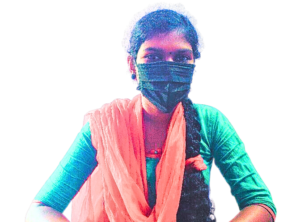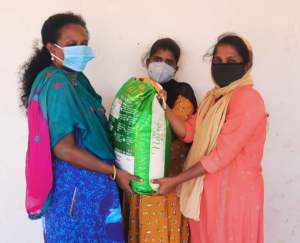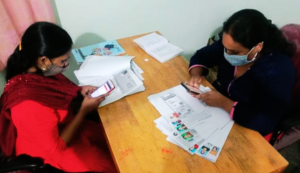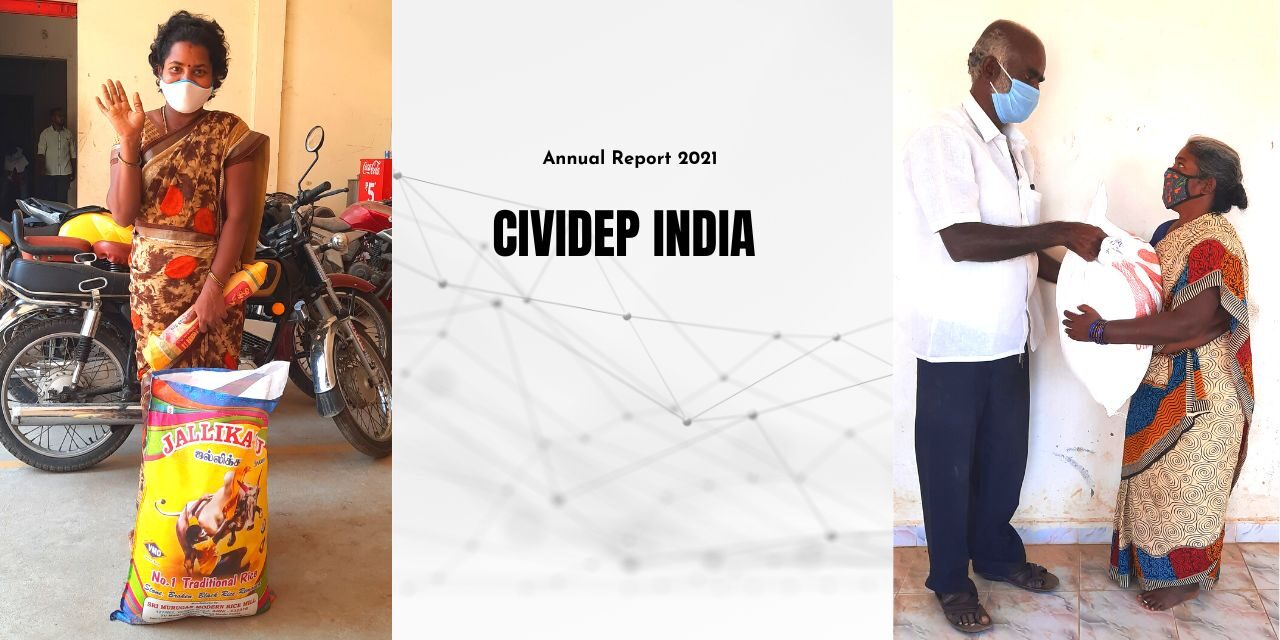Stories Of Three Women Workers From Cividep’s Latest Annual Report Show Enduring Ability To Fight Back In The Face of Adversities
We don’t have any grand stories to tell as the year comes to a close. However, we also took stock like everyone else and prepared our Annual Report. After all, we had just celebrated our 20th anniversary as a committed non-profit in labour rights and corporate accountability and received the Esther Busser Memorial Prize for our work.
Our stocktaking turned out to be a humbling exercise as we came across several stories of grit and courage in the face of job losses and major health scares. We present to you the tales of three women – their struggles during the pandemic and how Cividep and its team were able to help.
We didn’t transform their lives with our Covid relief work, which was on from 2020-2021. But the relief efforts surely helped them pay bills, buy medicines, keep a roof over their heads and even offer a space to unburden themselves.
Here are the stories of Rajini, Padmakka, and Shashikala, some in their own words and others by our wonderful field team.
‘Cividep’s Study Circle Sessions Are The Best Part Of My Week’: Young Electronics Worker
 I am Rajini (name changed), a 21-year-old worker at the assembly plant of a manufacturer for a multinational phone brand. I heard about the Sunday study circle sessions at the Cividep Worker Resource Centre from Nanthini (Cividep’s local field activist); soon I started attending regularly.
I am Rajini (name changed), a 21-year-old worker at the assembly plant of a manufacturer for a multinational phone brand. I heard about the Sunday study circle sessions at the Cividep Worker Resource Centre from Nanthini (Cividep’s local field activist); soon I started attending regularly.
At the WRC, I learned about many rights and entitlements. I now know how to check my Provident Fund (PF) balance and about the Employee State Insurance (ESI) card, which I had no idea about earlier.
We also learn so much by discussing and sharing grievances with workers from other factories. Here we are given books, and newspapers and encouraged to prepare for the TNPSC (state public service commission) exam; we are pushed to work for better opportunities.
I always look forward to coming here after a stressful week of work, and I think I am a changed person after this experience.
Migrant Worker Loses Job But Keeps Roof Over Her Head With Timely Aid From Cividep
 Padmakka is a migrant garment worker who moved to Bengaluru from the Hindupura district of Andhra Pradesh. This 38-year-old divorcee is the sole breadwinner of her family consisting of two young children. She has been working in the garment sector for many years, first as a domestic worker**(clarify), and now as a tailor. She lost her job in March 2021 when the factory management decided to reduce the workforce strength due to a fall in the number of work orders.
Padmakka is a migrant garment worker who moved to Bengaluru from the Hindupura district of Andhra Pradesh. This 38-year-old divorcee is the sole breadwinner of her family consisting of two young children. She has been working in the garment sector for many years, first as a domestic worker**(clarify), and now as a tailor. She lost her job in March 2021 when the factory management decided to reduce the workforce strength due to a fall in the number of work orders.
Life had already become tough for this worker. Her two children, aged 18 and 16, had earlier dropped out of school due to the family’s limited income. The younger son started working as an apprentice in a garage for a paltry sum.
Around the time Padmakka lost her job, her son also lost his job and the family struggled to buy food, pay rent, and other bills. The landlord threatened to throw them out.
The COVID relief money provided by Cividep came at a time of great need and helped Padmakka pay rent and buy essentials for her family.
(In pic: Recipients of Cividep’s Covid relief)
Covid Relief Helps Garment Worker Buy Medicines, Other Essentials After Hospitalisation
 Shashikala is a 26-year-old garment worker who migrated to Bengaluru from Sakleshpura in the Hassan district of Karnataka. She works at a domestic garment unit as a helper.
Shashikala is a 26-year-old garment worker who migrated to Bengaluru from Sakleshpura in the Hassan district of Karnataka. She works at a domestic garment unit as a helper.
She is a divorcee and her father is her only family now. Before the pandemic she used to earn around Rs. 8,000 per month and she managed to pay rent, food, utility, and medical bills with it.
When her factory shut down during the pandemic-related lockdown in 2020, she did not receive wages for two months. She was not entitled to social security benefits such as Provident Fund or Employee State Insurance.
Life got tougher when she was down with Covid-19 in 2021. She had no means of help or support in the city. When the infection worsened, it was a neighbour helped secure a bed at a government hospital in the city.
After she was discharged, Shashikala didn’t have much money left. In this dire situation, the monetary aid from Cividep’s relief project helped her buy basic provisions and medicines. (In pic: Cividep’s Covid relief team processes applications from workers for aid)
Read the full Annual Report here.

